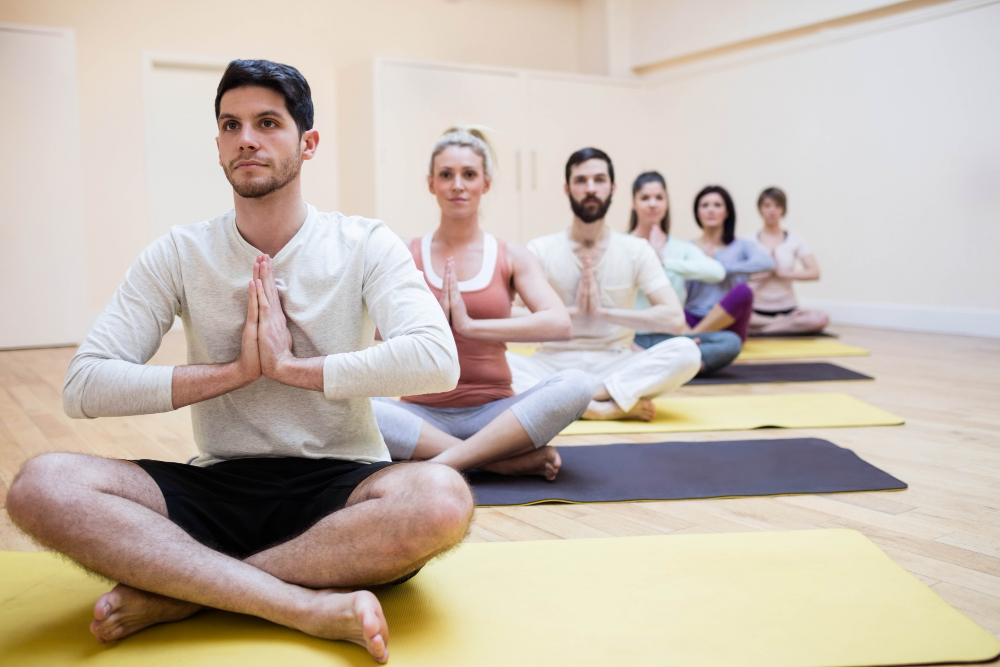12 Skills You Need to Be a Successful Yoga Teacher

Becoming a yoga instructor requires more than just a passion for yoga; it demands distinct skills that ensure your success and your student’s growth. This article explores 12 essential skills every aspiring yoga teacher should cultivate.
Whether you’re just starting out or looking to refine your teaching methods, these insights will guide you toward becoming a more effective and inspiring yoga instructor. Let’s dive in.
1. Deep Knowledge of Yoga Philosophy and Techniques
A successful yoga instructor possesses a deep understanding of yoga philosophy and techniques. This encompasses not just the physical postures but also yoga’s historical and spiritual elements. An instructor should be able to teach the basics of yoga philosophy, including the Yoga Sutras, the eight limbs of yoga, and how these principles can be applied to everyday life.
Moreover, a broad knowledge of various yoga styles and techniques allows an instructor to cater to a diverse range of students and their needs.
2. Strong Communication Skills
Communication is vital in teaching yoga effectively. A yoga instructor must articulate instructions clearly and concisely, ensuring that students understand the form and function of each pose.
Good communication also involves active listening, responding to students’ questions, and providing feedback in an encouraging and supportive way. It is crucial to adjust one’s communication style to suit different learners.
3. Ability to Create a Safe and Inclusive Environment
Creating a safe and inclusive environment is fundamental for a yoga instructor. This involves not only the physical safety of students through proper alignment and adjustment cues but also fostering a welcoming atmosphere where all students, regardless of their background or skill level, feel valued and supported. This skill ensures students can explore their practice without fear of judgment or injury.
4. Adaptability and Flexibility
Adaptability and flexibility are essential qualities in a yoga instructor. Classes may not always go as planned—students might struggle with specific poses, unexpected interruptions may occur, or you might need to modify your lesson plan on the fly to accommodate different skill levels. Adjusting your teaching approach and thinking on your feet is crucial for maintaining a smooth and effective class flow.
5. Patience and Empathy
Patience and empathy are vital for fostering a positive learning environment. A yoga instructor must understand that each student’s body and yoga journey are unique. Some may progress quickly, while others need more time and encouragement.
Exhibiting patience, offering personalized modifications, and empathizing with students’ challenges will make you a more compassionate and effective teacher.
6. Strong Personal Practice
A successful yoga instructor maintains a robust personal practice. Regularly engaging in your own yoga practice improves your physical skills and deepens your understanding of yoga’s mental and spiritual aspects. This personal commitment to yoga enriches your teaching, allowing you to genuinely share your experiences and insights with your students.
7. Continuous Learning and Professional Development
The field of yoga is ever-evolving, and a successful yoga instructor is committed to continuous learning and professional development. This can include attending workshops, taking advanced classes, reading relevant literature, and even pursuing additional certifications.
Staying informed about the latest yoga trends and teaching methodologies enhances your effectiveness as an instructor and demonstrates your dedication to your craft.
8. Leadership and Motivation
Leadership and motivation are crucial for inspiring and guiding students through their yoga practice. A yoga instructor should embody the qualities of a good leader—confidence, integrity, and the ability to motivate students to push beyond their perceived limits while ensuring they do not compromise their safety. Effective leadership fosters a strong sense of community and belonging among students.
9. Time Management and Organizational Skills
Efficient time management and organizational skills are necessary for a yoga instructor to conduct classes smoothly. This includes starting and ending classes on time, planning sessions to ensure a balanced and comprehensive practice, and managing administrative tasks efficiently. Good organization helps create a structured and relaxed learning environment for students.
10. Business Acumen
In today’s competitive landscape, having essential business acumen can significantly benefit yoga instructors. Whether you’re working at a studio or running your own yoga business, understanding marketing, customer service, and financial management can help you grow your classes and sustain your practice. Social media and online marketing skills are particularly valuable for reaching a wider audience.
11. Physical Stamina and Health
Teaching yoga can be physically demanding. A yoga instructor needs physical stamina and good health to demonstrate poses, assist students, and conduct multiple daily classes. Maintaining your physical health through regular practice, proper nutrition, and rest is essential for sustaining the energy levels required for teaching.
12. Creativity in Class Planning
Lastly, creativity in class planning keeps your yoga sessions engaging and challenging for students. A yoga instructor should be able to design classes that vary in theme, focus, and intensity to meet students’ diverse needs and interests. Incorporating creative sequences, music, and meditation can enhance the overall class experience.
Conclusion
Becoming a successful yoga instructor involves cultivating a range of skills that extend beyond the mat. From deepening your knowledge of yoga philosophy to developing strong communication and business skills, each competency is critical in your effectiveness as a teacher and your impact on your students.
We encourage you to reflect on these skills and take proactive steps towards personal and professional growth. Whether it’s through continuing education, refining your teaching methods, or exploring new ways to engage with your students, the journey of a yoga instructor is one of lifelong learning and development.
We’d love to hear from you if you found this article helpful! Share your thoughts in the comments, spread the word on social media, or explore our related services and products designed to support yoga instructors in their teaching journey. Together, let’s continue to enrich the world of yoga, one class at a time.
Read More:
Online Yoga Teacher Training
Related Posts

Excel in Online Yoga Classes

Achieving Radiant Skin with The Hot Yoga Glow
About Us


